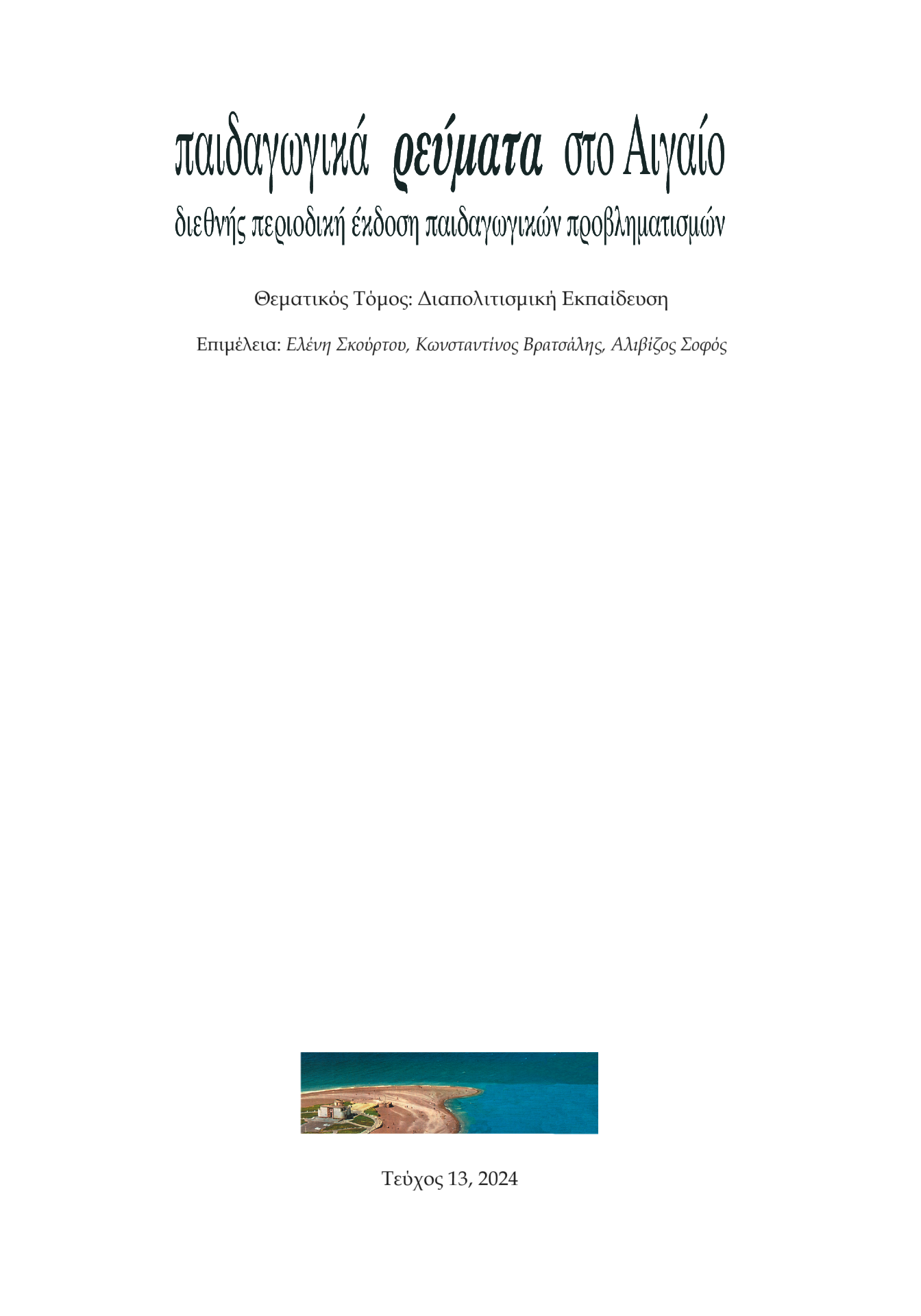Αξιοποιώντας το «ρίζωμα» στην κοινωνιογλωσσολογική και την εκπαιδευτική έρευνα
Περίληψη
Focusing on people who experience multilevel invisibility and social inclusion, such as unaccompanied minors, literacies research often fails to map and understand the fluidity of their needs and the disruptions they experience in their everyday educational and social lives including school drop-out and radicalization phenomena. Therefore, it is important that we experiment with new ways of thinking and researching. In the present paper, drawing on multiple literacies theory, I showcase how deleuzoguattarian philosophy, and specifically the concept of the rhizome may influence sociolinguistic thought and provide new tools for literacies research. Specifically, applying rhizomic thinking, in order to re-imagine a non-formal second language literacy classroom interaction in a hosting center for unaccompanied minors, I build on the sociolinguistic concept of translanguaging space (Wei, 2018), so as to describe a becoming classroom and becoming learners through the interaction of smooth and striated space. Thereby, I point out how power relations unfold among language users and linguistic features that re-/de-/territorialize in the linguistic landscape of the becoming classroom. Based on this example, I reflect on what counts as literacy and discuss the implications of a deleuzoguattarian approach for a rhizomatic language education inspired by a sociolinguistic justice perspective, and what I call ‘rhizomatic hope’.
Λεπτομέρειες άρθρου
- Πώς να δημιουργήσετε Αναφορές
-
Κίτσιου Ρ. (2024). Αξιοποιώντας το «ρίζωμα» στην κοινωνιογλωσσολογική και την εκπαιδευτική έρευνα. Παιδαγωγικά ρεύματα στο Αιγαίο, 13(1). https://doi.org/10.12681/revmata.37703
- Τεύχος
- Τόμ. 13 Αρ. 1 (2024)
- Ενότητα
- Θεωρείο

Αυτή η εργασία είναι αδειοδοτημένη υπό το CC Αναφορά Δημιουργού – Μη Εμπορική Χρήση – Παρόμοια Διανομή 4.0.



